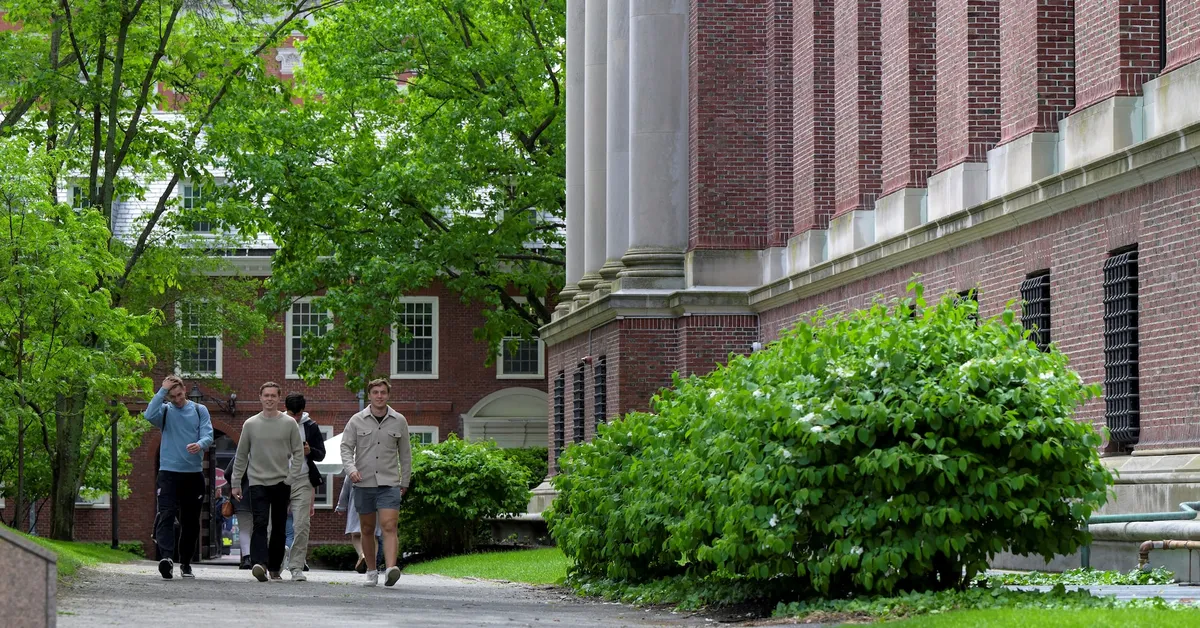
WASHINGTON, May 30 (Reuters) - In a significant development, the U.S. State Department has mandated that all consular missions abroad initiate additional vetting procedures for visa applicants intending to travel to Harvard University for any purpose. This directive, detailed in an internal cable obtained by Reuters, represents a substantial escalation of the Trump administration's campaign against the prestigious academic institution.
On May 30, U.S. Secretary of State Marco Rubio issued a directive to all U.S. diplomatic and consular posts, requiring them to commence enhanced vetting for any non-immigrant visa applicants who wish to visit Harvard University. This includes prospective students, current students, faculty members, employees, contractors, guest speakers, and even tourists. The internal cable outlines that these measures aim to help consular officers identify applicants with a history of anti-Semitic harassment and violence, as Harvard University has been criticized for not maintaining a campus environment free from such issues.
The application of these visa vetting measures to an institution like Harvard is unprecedented, marking a notable shift in the U.S. government's approach to visa processing. Historically, additional vetting has been applied to applicants from specific countries; however, targeting a university with these procedures indicates a significant expansion of the government's authority in the academic realm. This information was first reported by Fox News, although the cable itself had not been disclosed previously.
A spokesperson for the State Department declined to comment on the specifics of the internal cable when asked for clarification, reiterating the department's policy of not discussing internal communications.
The Trump administration has aggressively targeted Harvard University, which is the oldest and wealthiest university in the United States. Actions have included freezing billions of dollars in grants, proposing to eliminate its tax-exempt status, and launching an investigation into allegations of discrimination against white, Asian, male, or straight employees and job applicants. President Trump has claimed that top U.S. universities are breeding grounds for anti-American movements.
In a notable escalation, the Trump administration attempted to revoke Harvard's ability to enroll foreign students, a decision that was later blocked by a federal judge. Harvard contends that the administration is retaliating against the university for resisting its attempts to control various aspects of the school's governance, curriculum, and the ideological orientation of its faculty and students.
This move is also part of a broader crackdown on immigration. Following Rubio's directive, new appointments for student and exchange visitor visas have been halted. The Secretary of State indicated earlier this week that the U.S. would begin revoking visas from Chinese students affiliated with the Chinese Communist Party or those studying in critical fields. The implementation of these new measures is intended to serve as a pilot for expanded screening protocols for visa applicants, potentially setting a precedent for similar actions against other universities.
Furthermore, the cable directs consular officers to scrutinize the credibility of applicants whose social media accounts are private. Officers are instructed to request that such accounts be made public during the application process. The cable emphasizes that consular officers should consider any information that does not rise to the level of inadmissibility while ensuring that the applicant's stated purpose of travel aligns with their visa application.
The directive underscores a significant shift in the U.S. government's approach to visa applications, particularly in relation to Harvard University, and reflects ongoing tensions between the Trump administration and the academic institution. As the situation unfolds, it raises questions about the impact on international students and the broader implications for U.S. immigration policy.